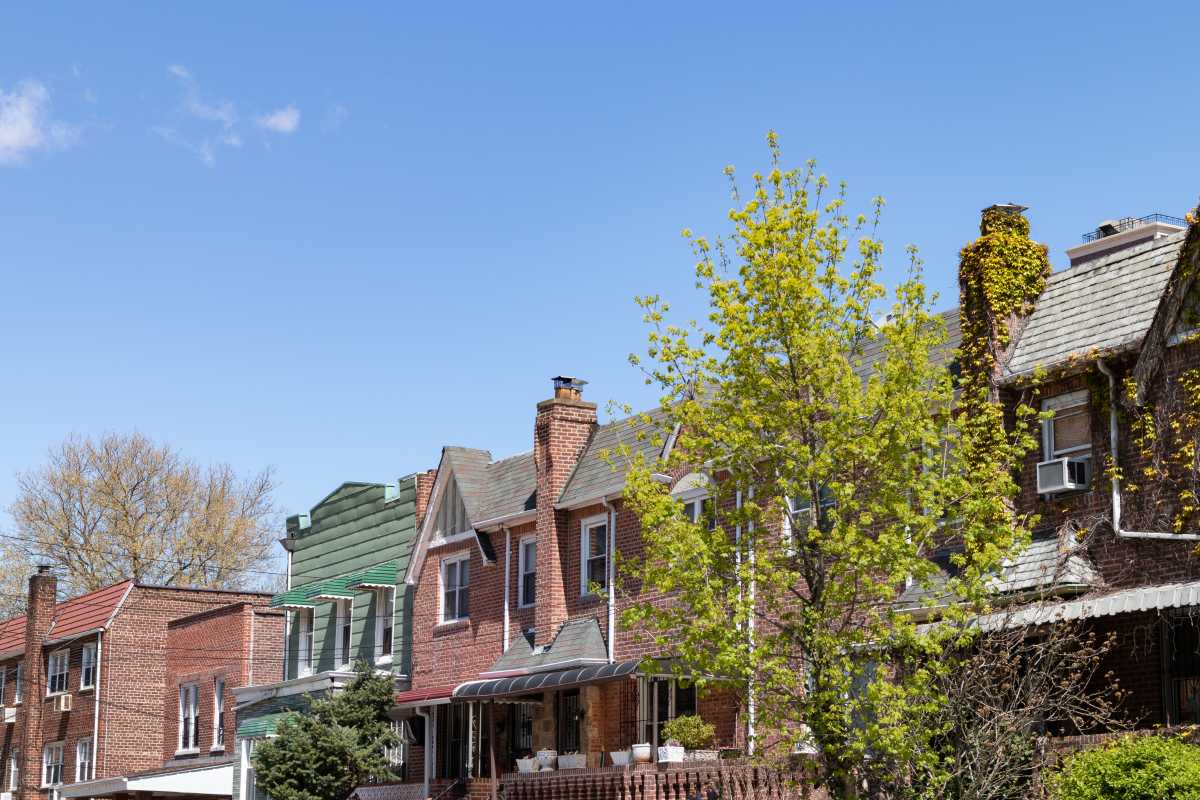Rahmel Jackson, 25, feels “a little bit ashamed” about living — still — with his mom in Harlem. “You don’t want to be a burden to your parents. They have so much stress already,” he explained. Then he thinks about all the friends he grew up with who are also still sleeping in their childhood bedrooms and his blues abate.
His generation’s failure to launch is “a structural problem” due to housing costs that have galloped exponentially ahead of stagnant wages, he rationalizes.
Indeed. A Pew Research Center survey released last year revealed that for the first time in 130 years, young people ages 18 to 34 are more likely to be living with parents than with a romantic partner. For that demographic, living with parents edged out living with a spouse or partner 32.1% to 31.6%, and swamped living alone (14%) and “other living arrangements” (22%).
The impediments of affording one’s own home are especially formidable in rent-burdened NYC. A StreetEasy analysis last year found that people entering the market-rate housing market would pay an average of 65.2% of their income on rent, up from 59.7% in 2015. New Yorkers, who lost 151,000 rent-regulated apartments since 1994, according to Comptroller Scott M. Stringer, find the search particularly painful. Growing up in housing their parents secured decades ago, they realize they have no chance of replicating the living standards of their childhood.
Rahmel’s mom, Shavonne Jackson, also houses a 27-year-old son who ricocheted back home, as well as a teenage son with special needs.
Their situation is rich in sitcom possibilities, she acknowledged. “You can’t have sex in my house: No!” Shavonne exclaimed. “If I can’t do it, they’re not doing it!” Bedroom doors remain unlocked in the Jackson home.
Eric Saltzman, 25, returned to live with his parents on the Upper West Side after graduating from American University. He said that being back in the family home is like sitting on a soft, enveloping couch.
“There’s an element of comfort in this big fluffy thing and it feels sort of nice, but with time you realize it’s uncomfortable and you have to get up,” said Saltzman, who works as a multimedia producer. He’s happy to be “the cooking guy and the chore guy” at home because “I’m saving a ton of money,” which he hopes to one day use for his own place, while living with free internet and cable.
Plus, Eric’s mom, Melanie Saltzman, a government administrator, doesn’t mind having a “technology consultant”-in-residence to help with internet perplexities. The pleasure of getting to know her son as an adult and the help he provides ameliorates the stress of three adults sharing a single bathroom in cramped accommodations. But she worries.
“What will be the opportunity for him and his friends to have a life here? It’s really sad” that housing costs have so far outstripped wages that young people have no hope of replicating the life cycle of their parents — or of obtaining a home close to their extended families, she lamented.
While multigenerational households are more common in immigrant households, for Kevin Mejia, 25, living with his mom and grandmother “is not a cultural thing. It’s a financial thing.” Mejia, an account coordinator, pays his mom, Maritza Mendez, about $500 a month to live in her Jackson Heights two-bedroom. (His mother and Mendez’s mother share a bedroom.) The arrangement helps Mendez financially and gives Mejia some breathing room on his $40,000 student loan debt.
“Living at home is totally socially acceptable” among Mejia’s friends: Almost everyone he knows who grew up in Queens is still in the same family boat. When he wants to catch up with peers, they usually do so in restaurants and bars out of respect for their parents, and to socialize freely out of their view. Still, said Mejia, the inability to start life on one’s own “is disillusioning. Everyone wants to grow up, but in today’s market, the American dream is just not achievable.”
Young men are more likely than young women to be living with their parents, and men without jobs or college degrees are more likely to be bunking with the ’rents than those without jobs and degrees, according to Pew.
Mothers “tend to baby our men” more than they do their daughters, said Shavonne Jackson, noting that she was living independent by age 17. She wants both Rahmel and his brother out of her apartment, but if Rahmel were to enroll in college, she said, “it would be totally different.”
Rahmel, who has had gig work in service jobs, coding and digital marketing, said he realizes he has “gone as far as I can go” without a college degree, and has vowed to earn one. He hopes to enroll in BMCC this fall.
“Men are clinging to familiar households because they feel more secure, and [their moms’ homes] offer warmth in a cold world,” said Stanley Aronowitz, distinguished professor of sociology at the CUNY Graduate Center. Women, he said, are more likely to accept suboptimal living conditions “to get away from their mothers,” he added.
The burden to “make good” for men is especially strong, yet their opportunities to do so in adequately paying jobs are diminishing because “the structure of employment has fundamentally changed” into a gig economy, Aronowitz continued. Unions and workers in general have lost so much power that not even a master’s degree is a guarantee of a job paying enough to pay for a NYC studio apartment, Aronowitz noted.
But can’t intergenerational households be a good thing, reducing isolation and strengthening family bonds?
Not in the current economic tsunami, said Aronowitz. Millennials are infantilized and demoralized when they can’t establish households of their own. And their parents suffer, too. Parents done raising children want to prepare for their retirements, downsize and “move into smaller apartments” — often located in the Sun Belt, he explained. But they can’t do so, said Aronowitz, because “they feel responsible for their kids.”





























